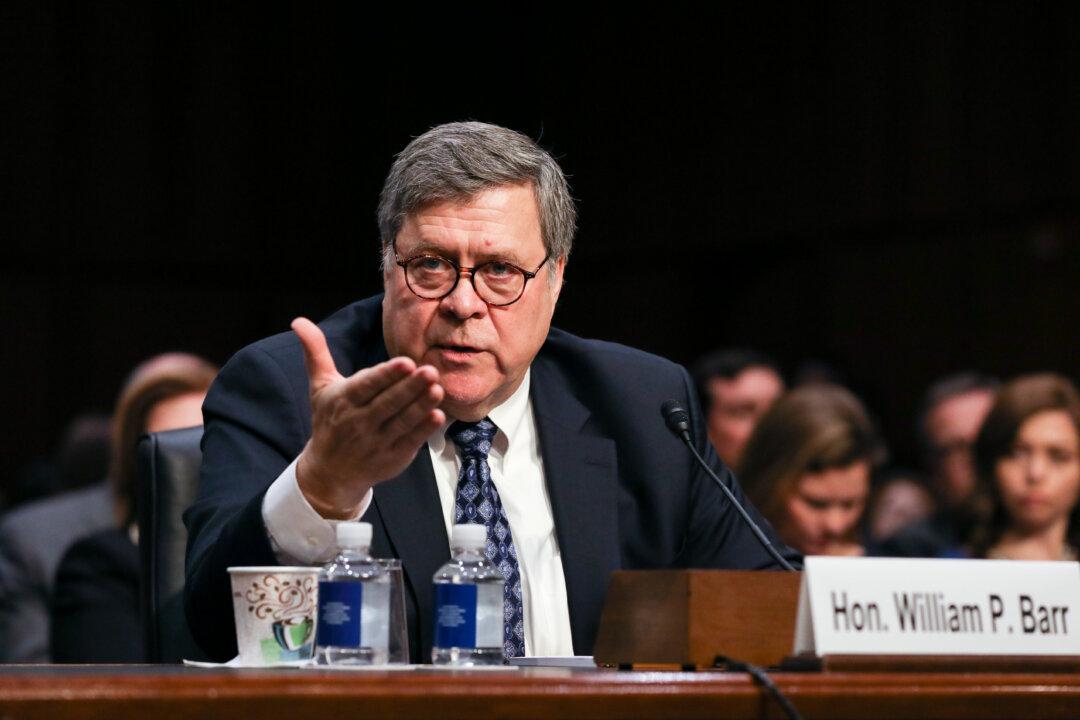The Senate approved President Donald Trump’s attorney general nominee, William Barr, on Feb. 14, putting the veteran Republican lawyer in charge of special counsel Robert Mueller’s probe of Russian interference in the 2016 election.
The Senate voted 54 to 45, largely along party lines. Barr has won praise from lawmakers in both parties for his expertise and grasp of the workings of the Justice Department, which he will lead.





